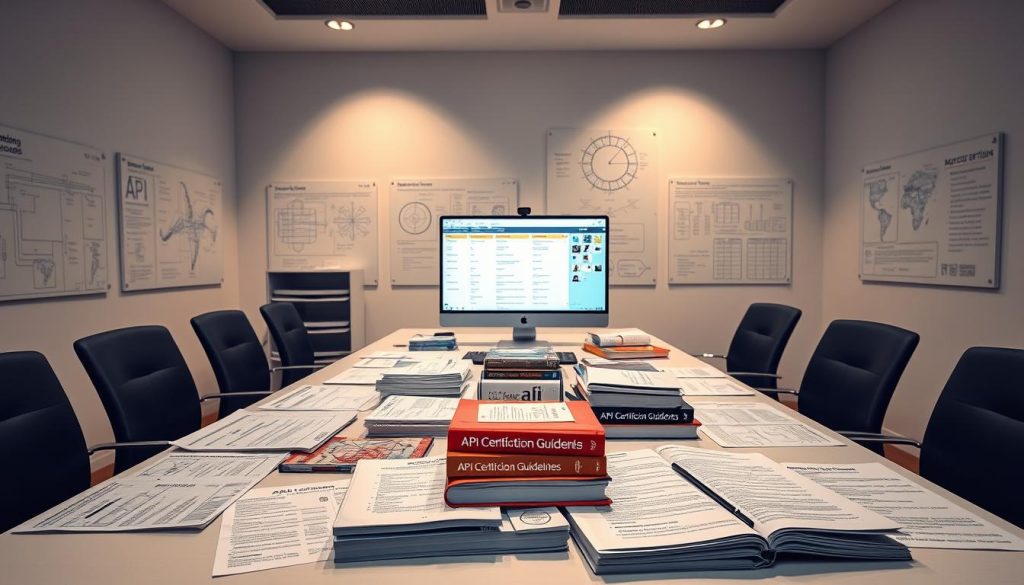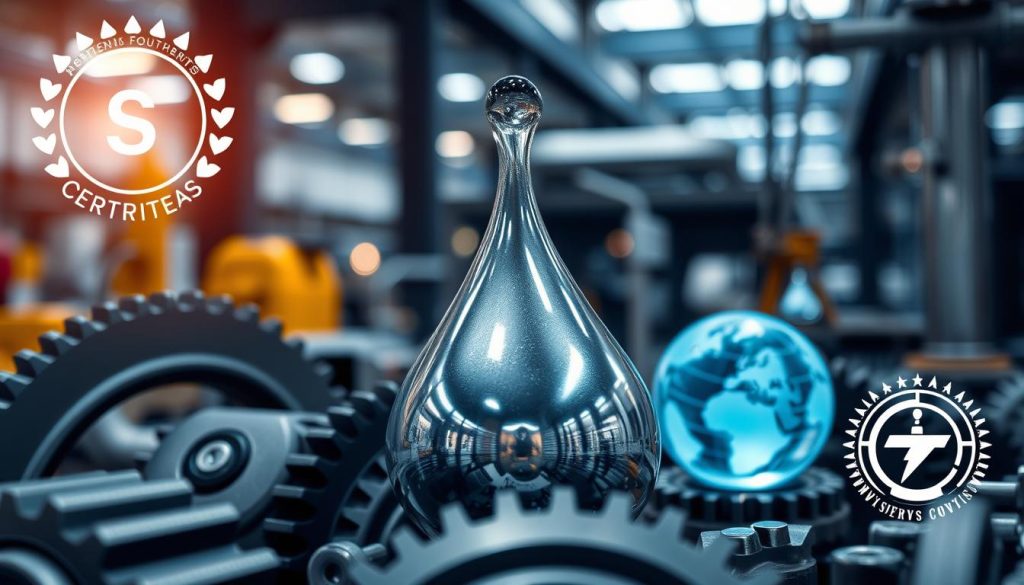API (American Petroleum Institute Certification) Test: Your Guide
Getting the API (American Petroleum Institute Certification) can really boost your career in the oil and gas field. This guide will give you a full overview of the API Test. It covers its importance, what you need to pass, and how to prepare well.
If you’re new to the oil and gas world or looking to grow in your career, knowing about API certification is key. By the end of this article, you’ll know how to pass the API certification exam. We’ll look at why API certification matters, what you need to do to pass, and how to prepare and do well.

Key Takeaways
- The API certification is a highly respected credential in the oil and gas industry, demonstrating expertise in areas such as pipeline inspection, welding, quality control, and safety regulations.
- Obtaining the API certification can open doors to new job opportunities, career advancements, and higher earning potential in the industry.
- The API certification exam covers a wide range of technical and industry-specific topics, requiring thorough preparation and study.
- Effective preparation strategies include enrolling in API certification training courses, utilizing study guides and practice tests, and gaining hands-on experience in the field.
- Understanding the exam requirements and familiarizing yourself with the test format can increase your chances of success in the API certification exam.
Understanding the API (American Petroleum Institute Certification) Test
The API (American Petroleum Institute) Certification Test is key for oil and gas industry workers. It shows a person’s skills in pipeline inspection, welding, quality control, and non-destructive testing. Employers see these certifications as a must-have, proving workers are ready to work safely and well.
API Certification’s Role in the Oil and Gas Industry
API certifications are essential in the oil and gas world. They make sure workers follow api standards, petroleum equipment standards, and quality control protocols. This keeps operations safe and reliable, from checking equipment to testing refineries. API-certified pros are in high demand for their skill in complying with safety regulations and doing non-destructive testing on important parts.
API Certification Exam Requirements
- To get an API certification, you need to meet certain exam requirements from the American Petroleum Institute.
- These usually include education, work experience, and passing a written test.
- The test covers topics like industry standards, safety rules, and technical methods.
- You also have to follow the API’s rules for exam eligibility, application, and testing locations.
Getting an API certification shows you’re serious about quality, safety, and professional growth in the oil and gas field. These certifications are highly respected by employers. They’re key to keeping energy systems safe and running smoothly.

Preparing for the API (American Petroleum Institute Certification) Test
Getting ready for the API certification exam is key. To do well, it’s important to use the many study tools out there. This includes online courses, classroom programs, and detailed study guides. These resources help you learn the exam’s content, industry standards, and how to take the test.
API Certification Training and Study Materials
It’s vital to use structured training and study tools for API prep. Online and classroom programs cover the exam’s content deeply. They help you understand the industry’s technical needs, quality standards, and safety rules.
Study guides also offer a lot of info, practice questions, and test-taking tips. They help you spot and fix any knowledge gaps.
Practice Tests and Mock Exams
Practice tests and mock exams are also crucial for API exam prep. They let you get used to the exam’s format, question types, and time limits. This helps you improve your test-taking skills and confidence.
By doing practice tests and mock exams often, you can find areas to get better. This way, you can fine-tune your approach and boost your chances of passing the API exam on your first try.